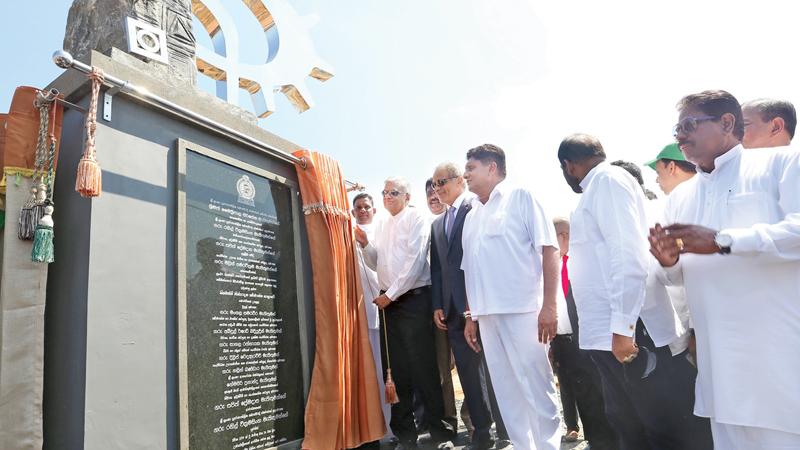
Following serious allegations on the proposed $3.85 billion Oil Refinery project in Mirijjawila,Hambantota, Transparency International Sri Lanka, expressed their concerns of a probable risk of the country ending up with sanctions imposed by the Financial Action Task Force (FATF) attached to the G20 countries in future.
The Executive Director of the TISL, Asoka Obeysekera told the Sunday Observer that the failure of the country to adhere to globally accepted banking methods would pave the way to more critical aftermaths.
 “Sri Lanka has been identified as a money laundering hotspot and there has been great deal of effort made by the Central Bank to get us off from the ‘gray list’ of FATF. If we do not get off the gray list, our banking system is in enormous danger. FATF is an arm of the G20 countries which is frequently referred to as the most powerful international organisation you have ever heard of. Such is the force of the sanctions which could be brought about by their decisions” he said.
“Sri Lanka has been identified as a money laundering hotspot and there has been great deal of effort made by the Central Bank to get us off from the ‘gray list’ of FATF. If we do not get off the gray list, our banking system is in enormous danger. FATF is an arm of the G20 countries which is frequently referred to as the most powerful international organisation you have ever heard of. Such is the force of the sanctions which could be brought about by their decisions” he said.
Asoka explained about the probable risk of Sri Lanka ending up in the black list of FATF in the future following the failure of the country to adhere to globally accepted banking methods where the oil refinery is concerned.
He said, “When we herald this as the largest Foreign Direct Investment ever coming to our country or rather that is what we keep hearing about this, we need also to be confident of the source of the money. We want to ensure that we get bona-fide investments to the country. We don’t want proceeding of a crime to floating around in our financial system. Instead of saying that everything need to be observed in microscopic detail, hotspots should be identified and studied closely. In this case, the Investor is a politically exposed person and it is certainly a hotspot”.
Chairman of Accord’s, S. Jagatrakshakan, the main investor as mentioned in the Government proposal, had told Reuters last week, that he gave an initial proposal to the Government of Sri Lanka but which hasn’t been finalised yet.
The Hambantota oil refinery became a blazing topic in Parliament last week with serious allegations been made including one of the Government having had a ground breaking ceremony for a project still at discussion level. It was also mentioned that the project was inaugurated last Sunday (24), the day on which fell the 70th birthday of t Prime Minister Ranil Wickremesinghe.
Nonetheless, Minister of International Trade and Development Strategies Malik Samarawickrama told the Parliament last Friday (29) that the project will be begin after another discussion scheduled for May this year in Oman.
However, various parties including politicians and independent organisations have already expressed concern about the source of the money to be infused to the project as S. Jagatrakshan is a former Minister in the Indian Congress Government, and there are a number of fraud allegations made against him by Indian authorities and the Indian Media.
“At a broader level there is a Draft of a Crime Bill sitting in the President’s office which has some important tools in tackling money laundering. It is a question, as why people like the President are reluctant to take it forward by publishing the Bill and starting a discussion about it” said Asoka.
Replying to the allegations about the project, the Sri Lanka Board Of Investment released a communique last week, stating that Foreign Direct Investment brought into Sri Lanka, including the oil refinery project in Hambantota, is channelled through the approved local banking system via Inward Investment Accounts (IIA) as per the Foreign Exchange Act and its Regulations in Sri Lanka.“All financial transactions were carried out by the Commercial Bank of Sri Lanka where all branches of the bank have their own AML/CFT regulations, which are also carefully monitored by the Financial Intelligence Unit of the Central Bank of Sri Lanka” it stated further.
